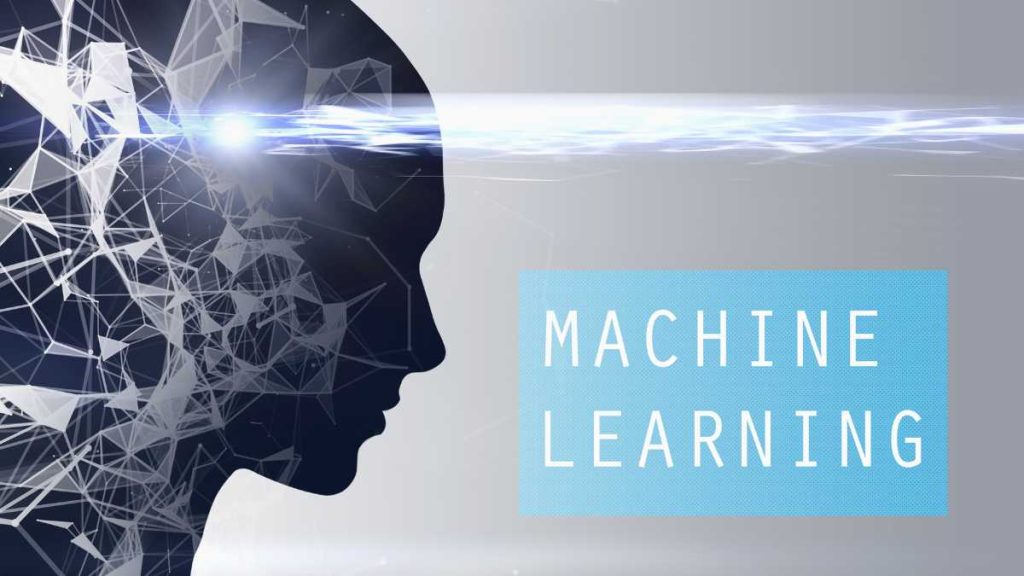Start your machine learning journey from anywhere. Explore top online courses and programs to build AI skills.
You’re interested in getting started with machine learning but don’t know where to begin. With so many courses and programs available online these days, it can feel overwhelming trying to find the right one to launch your AI journey. But don’t worry, we’ve got you covered. We’ve researched and reviewed the top online machine learning courses so you can make an informed decision.
Whether you’re a total beginner looking for ML fundamentals or want to take your existing skills to the next level, we’ve got options for you. These courses offer flexible learning from anywhere at your own pace. And the best part? No advanced degrees or previous experience is required. We’ll walk you through what each course offers so you can pick the one that aligns with your goals. Ready to start unlocking the power of AI? Read on to explore the best online courses to launch your machine learning education.
Top Online Courses for Machine Learning Beginners

Coursera’s Machine Learning Course
This course taught by Andrew Ng is one of the most popular machine learning courses. It covers the fundamentals of machine learning from the ground up. You’ll learn about linear regression, logistic regression, neural networks, and more. The course is very hands-on, with interactive coding exercises in Python and MATLAB. It’s a great overview for beginners.
Udacity’s Intro to Machine Learning
Udacity offers a free intro course on machine learning that’s ideal for beginners. You’ll learn machine learning basics, build your first models, and practice key techniques like regression, classification, clustering, and dimensionality reduction. The course provides interactive coding exercises in Python to help you learn by doing.
EdX’s Machine Learning Fundamentals
This course from Columbia University on EdX covers machine learning theory and techniques. You’ll learn about linear regression, logistic regression, decision trees, naive Bayes, and clustering. The curriculum balances theory and application, with coding exercises in Python. It’s a comprehensive beginner course in machine learning fundamentals.
Deep Learning Specialization (Coursera)
For those ready to dive deeper, Coursera’s Deep Learning Specialization is an ideal next step. This series of courses teaches you the theory and practice of building neural networks. You’ll learn techniques like convolutional networks, recurrent networks, and more. The hands-on coding exercises are in Python using TensorFlow. This specialization provides in-depth knowledge for any aspiring machine learning engineer.
With interactive and practical courses like these, you’ll be building machine learning models and honing your AI skills in no time. The future of AI is wide open—start your learning journey today!
Best Online Machine Learning Certification Programs

| Certification Program | Platform | Focus | Prerequisites | Cost |
|---|---|---|---|---|
| Coursera Deep Learning Specialization | Coursera | Deep learning, neural networks, applications in computer vision, natural language processing | Some machine learning and programming (Python) experience | Subscription or individual course purchase |
| Udacity Machine Learning Engineer Nanodegree | Udacity | Broad machine learning skills, model deployment, focus on real-world projects | Programming experience (Python), statistics, basic machine learning concepts | Subscription-based (monthly) |
| Coursera Applied Machine Learning Specialization | Coursera | Applied focus, end-to-end model development, feature engineering, model selection | Intermediate machine learning knowledge, programming experience | Subscription or individual course purchase |
| IBM Machine Learning Professional Certificate | Coursera | Applied machine learning with IBM tools and focus on practical deployment | Basic Python, some familiarity with statistics | Subscription or individual course purchase |
Coursera Deep Learning Specialization
This is one of the most popular machine learning courses on Coursera. Created by Andrew Ng, a pioneer in AI and co-founder of Coursera, the specialization provides a broad introduction to machine learning and deep learning.
Over five courses, you’ll learn the foundations of deep learning, understand how to build neural networks and apply it to computer vision, natural language processing, and more. The content is very beginner-friendly but also gives you practical experience building models. Assignments are done in Python using TensorFlow.
Udacity Machine Learning Engineer Nanodegree
Udacity’s Machine Learning Engineer Nanodegree program teaches you how to become an ML Engineer. The content focuses on applying machine learning and deep learning in the real world.
You’ll learn how to build models in TensorFlow, apply reinforcement learning, develop machine learning pipelines, deploy ML models, and more. The program includes practical projects where you can apply your skills to real datasets. It requires intermediate Python and calculus skills.
Coursera Applied Machine Learning Specialization
This specialization from the University of Michigan teaches you advanced machine-learning techniques and how to apply them to real-world problems.
Over three courses, you’ll learn cutting-edge supervised and unsupervised machine learning approaches, including deep learning, clustering, and recommender systems. Assignments give you hands-on practice applying these techniques in Python. It’s an excellent specialization if you want to build complex machine-learning models and systems.
With the wealth of free and paid machine learning courses available online today, you have opportunities to learn from anywhere. Choose a comprehensive program to become an ML expert or select individual courses to build specific skills. The future of AI is exciting, so start your machine-learning journey today!
How to Choose the Right Online Machine Learning Course

| Criteria | Considerations |
|---|---|
| Focus | Ensure that the course primarily focuses on machine learning as its main subject. |
| Interactivity | Look for courses that offer interactive elements, such as quizzes, assignments, and practical exercises. Interaction enhances learning and retention. |
| Content | Review the course curriculum to ensure it covers relevant and up-to-date theories, techniques, and practical applications of machine learning. |
| Practical Examples | Seek courses that provide real-world examples and case studies. Practical experience is crucial for mastering machine learning concepts. |
| Relevance to Career Goals | Consider whether the topics covered align with your career goals. Different courses may emphasize different aspects of machine learning, so choose one that suits your aspirations. |
| Reviews and Testimonials | Read reviews and testimonials from previous learners. Feedback from others can provide insights into the course quality and effectiveness. |
With so many courses and programs out there, how do you choose the right one for you? Here are some tips to find the perfect online machine-learning course:
Match your goals
Think about why you want to learn machine learning. Do you want to switch careers? Advance in your current role? Or just learn a new skill? Choose a course that will teach you relevant and practical skills for your goals.
Consider the prerequisites
Some courses require knowledge of programming languages like Python or statistics. Make sure you have the necessary background before signing up or look for a course targeted at beginners.
Examine the curriculum
Look at the specific topics and tools the course covers to determine if it’s comprehensive enough for what you need to learn. Things like neural networks, computer vision, and natural language processing are all important areas of machine learning.
Check reviews and ratings
See what other students say about the course. Look for reviews that mention valuable skills gained, knowledgeable instructors, helpful course materials, and an effective learning experience. High star ratings can also indicate a quality course.
Compare course formats
You can find machine learning courses on Udemy, Coursera, Udacity, edX, and other platforms. Consider factors like video lectures, hands-on projects, instructor support, and earning a certificate. Choose a format that fits your learning needs.
Consider going pro
Some platforms like Udemy and Udacity offer “pro” versions of courses for a monthly subscription fee. Pro programs provide additional benefits like project reviews, mentorship, and career services. See if the pros outweigh the cost for your needs.
With some research, you can find an online machine-learning course that will set you up for success. Compare your options based on your goals and learning preferences to choose a course that works for you. The skills you’ll gain will be well worth the investment in yourself.
Tips for Success in Online Machine Learning Classes
Set a regular study schedule
To succeed in online machine learning courses, set a consistent schedule for watching lectures, completing assignments, and studying. Treat it like an in-person class and block out time each week to focus on the material. Staying on a schedule will help you not fall behind and feel overwhelmed.
Take good notes
While watching video lectures, take detailed notes on concepts, examples, and key terms. Rewriting and summarizing the information in your own words helps reinforce your learning. Your notes will also provide a helpful reference when completing assignments and projects.
Ask questions
Don’t hesitate to ask your instructor or teaching assistant questions about anything confusing or unclear. They want you to succeed and are there to help support your learning. Asking good questions is one of the best ways to strengthen your understanding.
Find a study buddy
Partner with a classmate to form a virtual study group. Work through assignments together, quiz each other on concepts, and discuss ideas. Having a partner or small group to learn with can make the experience more engaging and effective. You can also turn to online forums and communities to connect with others taking the same course.
Practice and apply your skills
The only way to truly learn machine learning is to practice. Work through all examples, assignments, and projects in the course to apply what you’re learning. Come up with your own ideas for models and algorithms you can build to gain valuable hands-on experience. Over time, you’ll strengthen your skills through continued application and practice.
With hard work and persistence, you can succeed in learning machine learning through online courses. Stay focused, ask questions, find support, and practice consistently. You’ll build up your knowledge and skills over time and be on your way to becoming proficient in this exciting field.
FAQs on Machine Learning Online Courses
Are online machine-learning courses as good as in-person ones?
Online courses are a great way to learn machine learning. While in-person courses allow for more face-to-face interaction, top online courses taught by industry experts can be just as effective. The key is to find courses that provide interactive and hands-on learning with real-world projects to build your skills.
What programming languages do I need to know?
The main languages used in machine learning are Python and R. Python is the most popular, so start with learning Python. Then you can pick up R, which is also useful for statistical analysis and data visualization. Some courses may also introduce Java, C++, and SQL. While you don’t need to master all these languages, having exposure to them will help strengthen your machine-learning skills.
How much math do I need to know?
A solid understanding of statistics, linear algebra, and calculus is helpful for machine learning. You’ll need to grasp concepts like probability, hypothesis testing, matrices, derivatives, and integrals. However, don’t let the math scare you away. Most online courses explain the necessary math concepts and how they apply to machine learning. With practice, the math will become more intuitive. Focus on understanding the concepts, not just memorizing formulas.
What kinds of jobs can I get with machine learning skills?
Machine learning skills are in high demand and can open up many career opportunities. Some potential jobs include:
- Data Scientist: Help companies analyze data and gain business insights.
- Machine Learning Engineer: Build and deploy machine learning models and systems.
- Data Analyst: Analyze data to uncover trends and insights.
- Software Engineer: Develop software and web applications with machine learning.
How can I stay up-to-date with machine learning?
Machine learning is an ever-evolving field. To stay up-to-date:
- •Follow industry leaders and news sites.
- •Read the latest books on machine learning topics that interest you.
- •Take additional online courses as new machine-learning methods emerge.
- •Practice your skills by participating in hackathons and competitions.
- •Stay active in the machine learning community by joining forums and networking.
Continuous learning is key to building expertise in machine learning. While the field is complex, the opportunities for those with machine-learning skills are vast. With hard work and persistence, you can become a machine learning expert.
Conclusion
And there you have it – a handful of the top online courses and programs to launch your machine learning education and get started with AI. With offerings from platforms like Coursera, Udacity, and more, you’ve got flexible options to fit your schedule and budget. Whether you want to learn at your own pace or dive into a rigorous program, you can access beginner to advanced content in machine learning, neural networks, data science, and beyond.
The key is finding the option that aligns with your current skill level and career goals. Then put in the time and effort to complete assignments, build projects, and earn certifications to showcase your new abilities. With an engaging online course as your guide, you’ll be amazed at how quickly you grasp complex ML concepts. Before you know it, you’ll have the skills and confidence to apply AI in real-world roles or your own applications. The future is yours to shape – now get out there and start learning!



